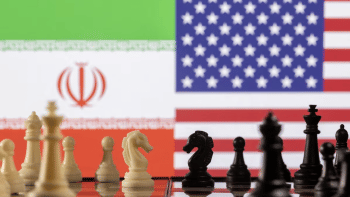Putin’s interview and the West’s extraordinary outrage

Russian President Vladimir Putin's recent interview with Tucker Carlson, rare as it is, is less fascinating than the extraordinarily vitriolic reaction to it in the West.
The interview demonstrated that Putin clearly lacks the ability to pack his responses in brief, pithy sound bites. On the other hand, regardless of what one may think of him, his introductory 30-minute disquisition on Russian history in Ukraine showed an impressive ability to marshal facts. Western leaders pale in comparison. Consider the two contestants of the forthcoming US presidential elections—President Joe Biden and former President Donald Trump, whose verbal gaffes seem to get more embarrassing by the day.
Former Fox News broadcaster Tucker Carlson's Putin interview was received with apoplectic outrage by the Western media. Cries echoing "traitor" reverberated as Western commentators demanded Carlson's head on a platter. The president of the European Union, Ursula Von der Leyen—never one to lose an opportunity to showcase her craven servility to the US—warned of banning Carlson from travelling in the EU.
This faux outrage is quite inexplicable. It is, in fact, the media's job to interview geopolitical adversaries. Whether it's Al Qaeda's Osama bin Laden, Iraq's Saddam Hussein, or Iran's Ayatollah Khomeini, Western journalists have freely interviewed people vilified in the Western media as the devil incarnate. Invariably, rather than being lambasted for it, the interviews have been viewed as scoops. I vividly remember during the US war against Iraq when Iraqi Foreign Minister Tariq Aziz was regularly seen on Western television while the US was bombing Baghdad.
Many outside the West must be scratching their heads trying to figure out what the fuss is all about. Whether good, bad, or ugly, Putin is a crucial figure in global geopolitics who is engaged in a war that has rocked the world.
This is what makes the recent incandescent outrage so frightfully odd. Call me cynical, but I'm increasingly convinced that the real reason behind the outrage is an unspoken, underlying insecurity that the US-led Western neoconservative narrative is standing on an increasingly flimsy ground. The US has always been the 800-pound gorilla in global affairs, but now geopolitical dynamics are changing. The information explosion on social media (some of it admittedly of dubious provenance) has made it impossible for Western gatekeepers to maintain a chokehold on the media narrative. Even in the media, Russia's Russia Today and Sputnik, China's CGTN, and Iran's PressTV are giving the Western media a run for its money.
My claim is not that Putin is as pure as the driven snow (he isn't). But the stark contrast the West has drawn between itself and Putin isn't cutting much ice in most of the world. This doubt is beginning to seep into public opinion in the West as well, hence the vicious attacks on anyone questioning the dominant Western narrative. Even a factual critique of the 2014 US-engineered coup in Ukraine and the violent White supremacist Nazi sympathisers under its fold (acknowledged by the US itself earlier) is liable to get you labelled as a "Putin apologist."
Western neoconservatives are terrified of a real interview with Putin. The neocon stock-in-trade is vilifying an adversary into a monster. We saw this in action with Panama's Manuel Noriega and Iraq's Saddam Hussein, which begs the question: how come both were such great chums of the US at one time?
The Western powers fear that their attempts at demonising Putin—already threadbare—will fall apart if folks have a chance to actually see what Putin has to say without Western media's distortion. The hundreds of millions of views on Putin's interview should scare Western media gatekeepers. But we know now, beyond a doubt, that there are millions who smell a rat in the Western media's narrative. They suspect that the West's demonisation of Putin masks its own geopolitical agenda.
The Western narrative is also a victim of bad timing. The West's protestations of a "rules-based-order" ring particularly hollow when it is showering billions of dollars on Ukraine while remaining complicit in Israel's genocide in Gaza—denying national rights of Palestinians since 1948. The sheer scale of Israel's killings—tens of thousands of children dead, snipers picking off churchgoers in Nazareth, and the indiscriminate slaughter of health service providers, journalists, you name it—are palmed off under the rubric of Israel's "right to defend itself." When the International Court of Justice indicts Israel, the West responds by cutting funding to the UNRWA, the UN's Palestinian relief agency. If you dare raise any questions, you are dubbed an anti-Semite.
Whether it is Putin or Palestine, Western neoconservatives have lost in the court of the world's public opinion. No wonder Western media is so vicious in its critiques. They are facing daunting challenges in their own countries. Their conceit has always been that the Western media is uniquely free and fair. This contention is under increasing scrutiny even in their own countries.
However, it must be mentioned that Tucker Carlson is no knight in shining armour. The rise of his extraordinary popularity stems from his promotion of White-supremacist conspiracy theories, such as the "great replacement" which claims immigrants of colour are being brought in the US to disempower the natives. He has called Iraqis "semiliterate primitive monkeys." His friendly view of Putin contrasts sharply with his view of China, in regard to which he sounds as shrill as Western neoconservatives do in Russia. China, according to Carlson, is a "racist, militarised ethno-state" that "runs along traditional fascist lines."
So, the uncomfortable fact is that at least as far as the US goes, a robust alternative to the overwhelming conventional neoconservative wisdom about Putin and Ukraine is widely available, but it is disseminated by a broadcaster whose ideological moorings are repugnant.
Worldwide, the reaction to Putin's interview presents an interesting contrast to the West: there is zero hyperventilation or outrage, just as it should be. Many outside the West must be scratching their heads trying to figure out what the fuss is all about. Whether good, bad, or ugly, Putin is a crucial figure in global geopolitics who is engaged in a war that has rocked the world. As such, he is a legitimate subject for an interview.
The greater risk for the West is that it is locked inside its sanctimonious bubble, and is repeatedly failing to realise how suspect its moral claims are in the eyes of the wider world. Perhaps at the end of the day, there is a poetic justice to it all. Overwhelmingly successful propaganda has an Achilles' heel. It can ultimately turn into a Pyrrhic victory as one falls victim to one's own propaganda, fatally impairing one's perception of reality.
Ashfaque Swapan is a writer and editor based in Atlanta, US.
Views expressed in this article are the author's own.
We welcome your contributions and analysis of global events. To submit articles to our weekly page, Geopolitical Insights, please send an email to [email protected]
Follow The Daily Star Opinion on Facebook for the latest opinions, commentaries and analyses by experts and professionals. To contribute your article or letter to The Daily Star Opinion, see our guidelines for submission.

 For all latest news, follow The Daily Star's Google News channel.
For all latest news, follow The Daily Star's Google News channel. 










Comments